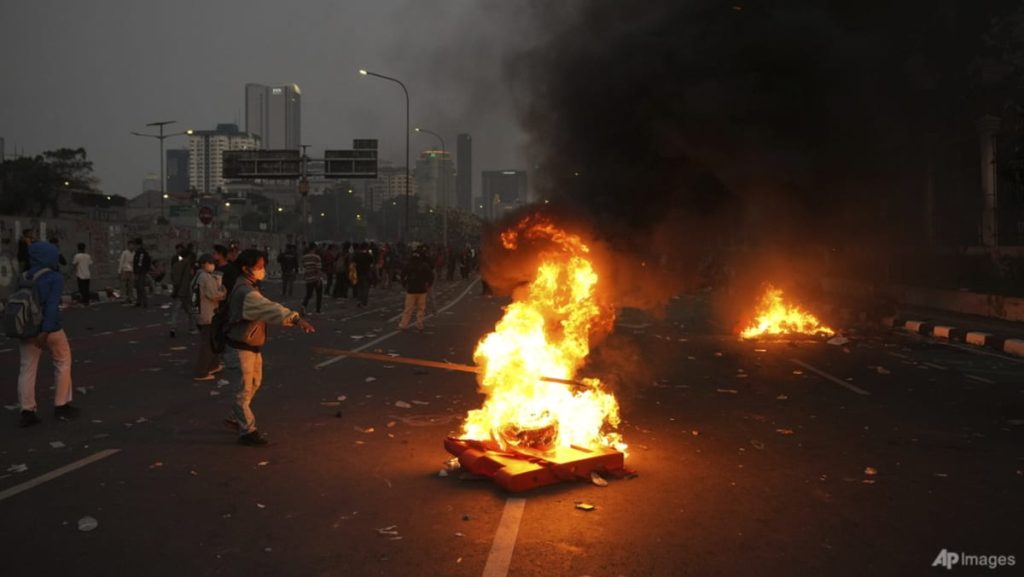Protests erupted in Indonesia over a power struggle between the parliament and the constitutional court regarding the authority to determine electoral laws. The parliament had planned to ratify changes to the law that would reverse a decision made by the constitutional court earlier in the week. However, due to widespread outcry and criticism, the parliament ultimately postponed and then shelved its plan. President Joko Widodo, commonly known as Jokowi, was facing mounting criticism for what analysts viewed as attempts to consolidate his power before stepping down from office in October.
The power struggle between the parliament and the court has incited anger in Indonesia, the world’s third-largest democracy. President Jokowi, who has served the maximum two terms, is set to be replaced by president-elect Prabowo Subianto and vice-president-elect Gibran Rakabuming Raka on October 20. The controversy surrounding the attempt to change electoral laws and consolidate power has heightened tensions in the country. Critics view Jokowi’s actions as an effort to maintain influence even after his presidential term ends.
The protests in Indonesia have brought attention to concerns about government overreach and efforts to manipulate electoral laws. The conflict between the parliament and the constitutional court has raised questions about the democratic process in the country. Critics argue that Jokowi’s actions are an attempt to secure power for himself and his allies even after he leaves office. The protests and backlash against the planned changes to electoral laws reflect a broader dissatisfaction with the political leadership and institutions in Indonesia.
President Jokowi’s presidency has been marked by efforts to modernize and develop Indonesia, but his legacy has been overshadowed by concerns about democratic erosion and concentration of power. The power struggle between the parliament and the court highlights the challenges facing Indonesia’s democracy and the need for checks and balances to prevent abuses of power. As Jokowi prepares to step down from office, the controversy surrounding the attempt to change electoral laws underscores the fragility of Indonesia’s democratic system and the importance of protecting democratic norms and institutions.
The protests in Indonesia have drawn attention to the power struggles and challenges facing the country’s democracy. The controversy surrounding the attempt to change electoral laws has sparked widespread outcry and criticism. President Jokowi’s efforts to consolidate power before leaving office have raised concerns about democratic backsliding and authoritarian tendencies. As Indonesia transitions to a new administration, the country faces significant challenges in safeguarding its democratic principles and ensuring the integrity of its political institutions.
Overall, the protests in Indonesia reflect a deepening political crisis and a growing dissatisfaction with the current leadership. The power struggle between the parliament and the constitutional court over electoral laws has exposed vulnerabilities in Indonesia’s democratic system. As the country prepares for a leadership transition in October, the challenges facing Indonesia’s democracy will require continued vigilance and efforts to strengthen democratic institutions. The protests serve as a reminder of the importance of upholding democratic norms and principles in order to safeguard the rights and freedoms of all Indonesians.


